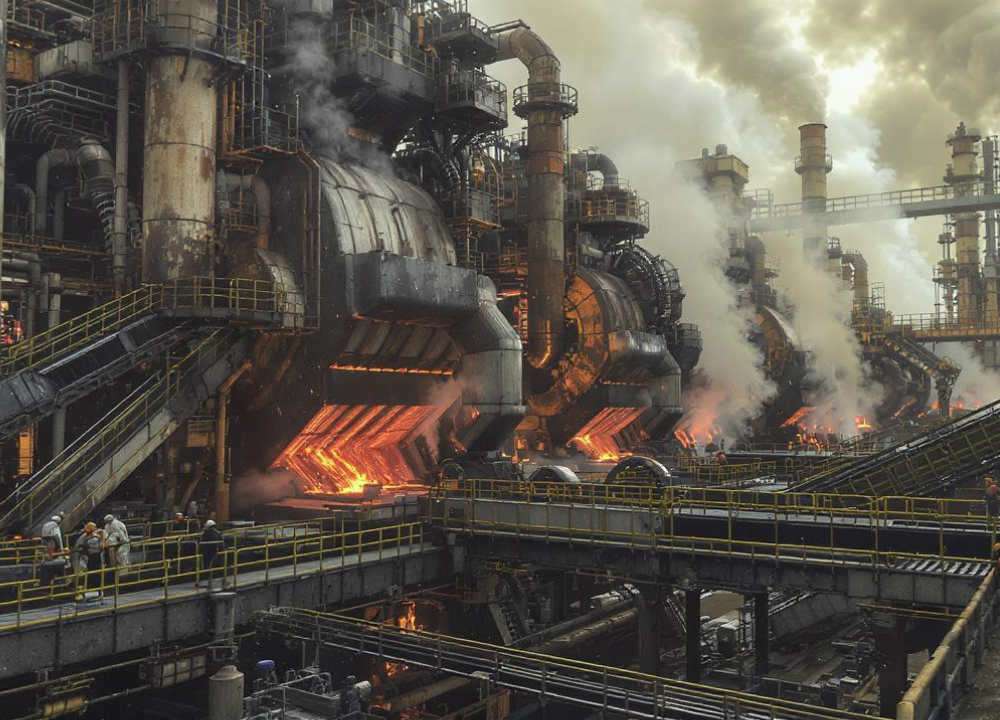The Robotomation Symposium, dedicated to exploring robotic automation trends in manufacturing, centered on global advancements in robotics and automation technologies. Organized by the VDMA Robotics + Automation Association, a division of the German Mechanical Engineering Industry Association (VDMA), the event marked its seventh edition.
The VDMA recently held its 7th Robotomation Symposium 2024 at Novotel Pune Nagar Road, Pune. The event, organized by VDMA India in collaboration with VDMA Robotics + Automation, focused on trends in robotic automation within the manufacturing industry. The symposium took place on June 5, 2024, and was attended by over 175 delegates, highlighting the global importance of Robotomation 2024.
The event featured prominent figures, including Dr A.K. Jindal, Advisor E-Mobility New Products and Technology at TATA Autocomp Systems Limited, as the Chief Guest; and Indraneel Chitale, Partner, Chitale Group, as the Guest of Honor. Key speakers from VDMA included Anne Wendel, Director, Machine Vision Group, VDMA Robotics + Automation; and Rajesh Nath, Managing Director, VDMA India.
Symposium Highlights
In a rapidly evolving industrial landscape where automation plays a pivotal role there is a need in enhancing productivity, efficiency, and quality. The emphasis should be on the need for industries to adapt to new technologies to stay competitive and meet global expectations. The dual challenges and opportunities presented by automation as it offers immense potential for growth and efficiency, it also requires careful consideration of costs and the existing labor market dynamics. The government’s proactive role in promoting automation through initiatives like Make in India is crucial for accelerating this transformation.
On this backdrop, the Symposium focused on the worldwide robotics and automation trends for the Manufacturing sector. The symposium provided a platform to discuss the rapid advancements in robotics and automation technology. It covered the latest trends in various sectors such as automotive, machine tools, foundry, agriculture, heavy industries, and textiles.
VDMA, established 130 years ago, is the largest association of German machinery and plant manufacturers. It has more than 3600 members who produce machinery worth EUR 264 billion, exporting 78% of it. Recognizing the potential of the BRIC countries, VDMA set up its first foreign office in India in the early 1990s, followed by offices in China, Brazil, Japan, the US, and other countries.
This year, a delegation from VDMA Frankfurt visited India, including companies like Parkvi, Jumavis, VITRONIC, and Carl Zeiss Automated Inspection. The symposium aimed to address the challenges posed by the global pandemic, such as labor shortages and supply chain disruptions, emphasizing the need for resilient and adaptive automation systems.
Key Discussions
Initiating the discussion, Rajesh Nath emphasized the significance of the VDMA Symposium on Robotomation and its focus on robotic automation trends in the manufacturing industry. This symposium was organized by VDMA India in collaboration with the Robotic and Automation division of VDMA in Frankfurt.
In his speech, Mr Nath highlighted how the global pandemic disrupted industrial activities worldwide, causing labor shortages, supply chain issues, and fluctuating raw material prices. These challenges underscored the importance of having resilient and adaptive automation systems.
Stressing on ‘Make in India’ movement, he said, “The Indian industrial automation market is expected to grow due to government initiatives such as Make in India and Digital India. These initiatives aim to boost productivity and demand for automation solutions by encouraging the implementation of automation technology across various industries.”
Quoting India’s Prime Minister, MrNath remarked, “India is growing rapidly, and the world has high expectations from us. We cannot let this opportunity go. Let us draw inspiration and learnings from today’s presentations and interactions. All this will ultimately help us. We want to see India’s growth story.”
On the other hand, Dr Jindal focused on the need for advanced automation and the integration of IoT devices in the manufacturing industry in India. He stressed the importance of overcoming challenges related to cybersecurity and data privacy while highlighting the potential for making factories smarter and more efficient.
Dr Jindal remarked, “While robotics and automation have advanced significantly worldwide, they have not yet achieved the same level of growth and adoption in India. There is still much work to be done, particularly in the automotive and manufacturing industries in India.”
In a noteworthy statement, Mr Chitale emphasized, “We want to be a global brand known for its quality for the Make in India product.” This powerful declaration underscores India’s ambition to become a competitive and prominent player in the global market.
Mr Chitale also discussed the impact of automation on the food industry. He shared how automation has significantly increased their production capacity and helped maintain consistent quality across their products. He emphasized the importance of adopting global technologies to enhance productivity and achieve their goal of becoming a global brand.
Mr Chitale said, “The traditional Indian food industry is gradually embracing automation and robotics, making a significant impact. Despite facing various challenges and disruptions, reliance on technology has become crucial. Our production has surged from 300 kilograms a day to an expected 2000 kilograms an hour by the end of the month, thanks to our adoption of global automation technologies.”
On similar notes, Anne Wendel spoke about the global success of robotics and automation. She highlighted the growth in the number of robots used in factories and the importance of machine vision and AI in advancing automation. Ms Wendel also stressed that automation is key to maintaining competitiveness and ensuring high-quality production.
Ms Wendel, said, “The exponential growth of Artificial Intelligence (AI) is remarkable, with an annual growth rate of 7% over the last five years, resulting in over 3.9 million robots in operation worldwide. This technology revolutionizes factory operations, with an average of robots per 10,000 employees.”
She also added that, “Korea stands out for its high level of automation, while India has significantly increased its robotic installations over the past 15 years, now at 7 robots per 10,000 employees. In Europe, automation is essential for maintaining competitiveness in the global market.”
Partners and Presentations
The symposium featured several partners who shared their insights and innovations. Beckhoff Automation Pvt Ltd discussed product handling through robotics and automation. Carl Zeiss India Pvt Ltd focused on robotic inline inspection and metrology for car body construction. DURR India Pvt Ltd presented sustainable and innovative applications for painting and sealing, while Eplan Software Pvt Ltd highlighted engineering automation in robotics.
Similarly, KUKA Robotics India Pvt Ltd showcased the latest technologies in automotive BIW and EV battery manufacturing, and Parkvi GmbH introduced new AI-based inspection trends. Schmersal India Pvt Ltd emphasized making robotic workplaces safer, and Schunk Intec India Pvt Ltd talked about adaptive EOAT and future trends. Siemens Technology and Services Pvt Ltd discussed the future of automation, while Zimmer Automation Pvt Ltd shared smart end-of-arm tool solutions for robotic applications. Baumer India Pvt Ltd presented smart advanced sensors and vision solutions for robotics automation.
The VDMA 7th Robotomation Symposium 2024 was a significant event that brought together industry leaders, experts, and stakeholders to discuss the future of robotics and automation in manufacturing. The discussions and presentations highlighted the importance of adopting advanced technologies to enhance productivity, maintain quality, and stay competitive in the global market. The symposium indicated the crucial role of automation in driving growth and innovation in various industries, facilitating for a smarter and more efficient future in manufacturing.







